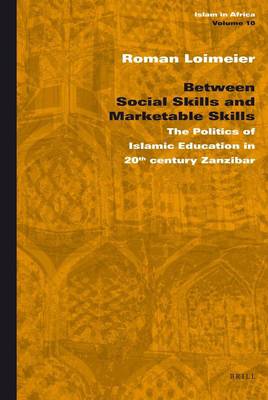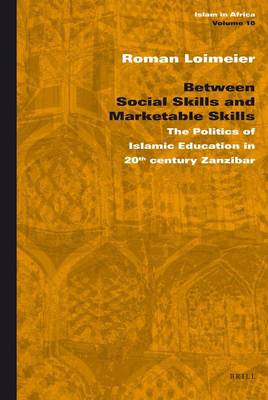
Je cadeautjes zeker op tijd in huis hebben voor de feestdagen? Kom langs in onze winkels en vind het perfecte geschenk!
- Afhalen na 1 uur in een winkel met voorraad
- Gratis thuislevering in België vanaf € 30
- Ruim aanbod met 7 miljoen producten
Je cadeautjes zeker op tijd in huis hebben voor de feestdagen? Kom langs in onze winkels en vind het perfecte geschenk!
- Afhalen na 1 uur in een winkel met voorraad
- Gratis thuislevering in België vanaf € 30
- Ruim aanbod met 7 miljoen producten
Zoeken
Between Social Skills and Marketable Skills
The Politics of Islamic Education in 20th Century Zanzibar
Roman Loimeier
€ 476,45
+ 952 punten
Omschrijving
The present volume is a pioneering study of the development of Islamic traditions of learning in 20th century Zanzibar and the role of Muslim scholars in society and politics, based on extensive fieldwork and archival research in Zanzibar (2001-2007). The volume highlights the dynamics of Muslim traditions of reform in pre-colonial, colonial and post-colonial Zanzibar, focussing on the contribution of Sufi scholars (Qādiriyya, ʿAlawiyya) as well as Muslim reformers (modernists, activists, anṣār al-sunna) to Islamic education. It examines several types of Islamic schools (Qurʾānic schools, madāris and "Islamic institutes") as well as the emergence of the discipline of "Islamic Religious Instruction" in colonial government schools. The volume argues that dynamics of cooperation between religious scholars and the British administration defined both form and content of Islamic education in the colonial period (1890-1963). The revolution of 1964 led to the marginalization of established traditions of Islamic education and encouraged the development of Muslim activist movements which have started to challenge state informed institutions of learning.
Specificaties
Betrokkenen
- Auteur(s):
- Uitgeverij:
Inhoud
- Aantal bladzijden:
- 643
- Taal:
- Engels
- Reeks:
- Reeksnummer:
- nr. 10
Eigenschappen
- Productcode (EAN):
- 9789004175426
- Verschijningsdatum:
- 2/06/2009
- Uitvoering:
- Hardcover
- Formaat:
- Genaaid
- Afmetingen:
- 170 mm x 246 mm
- Gewicht:
- 1202 g

Alleen bij Standaard Boekhandel
+ 952 punten op je klantenkaart van Standaard Boekhandel
Beoordelingen
We publiceren alleen reviews die voldoen aan de voorwaarden voor reviews. Bekijk onze voorwaarden voor reviews.









